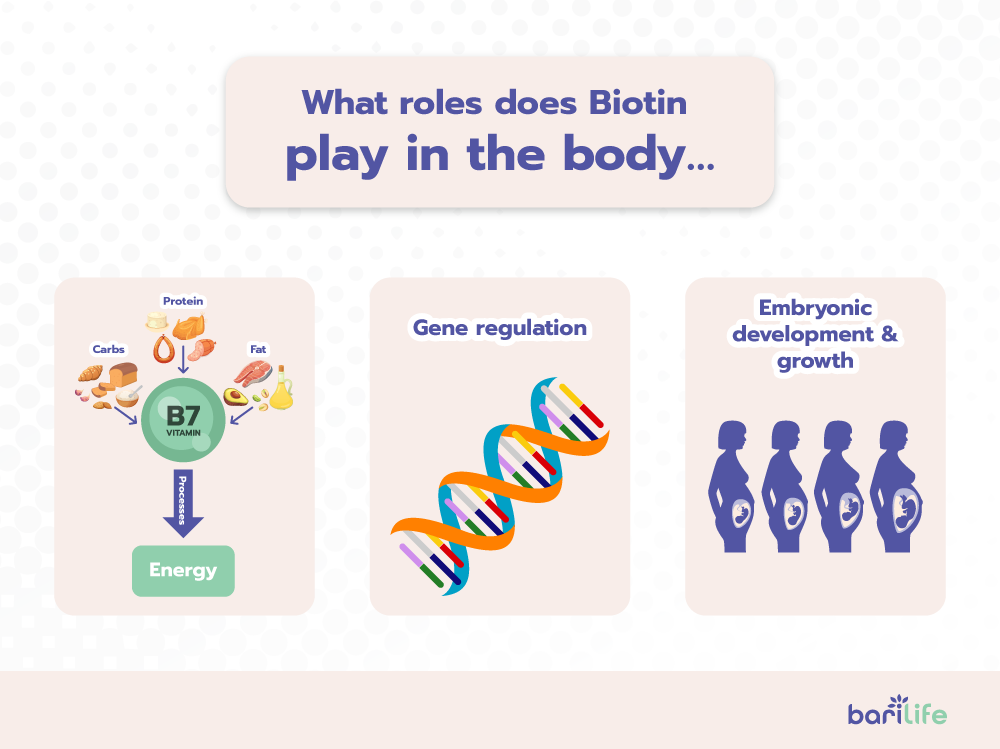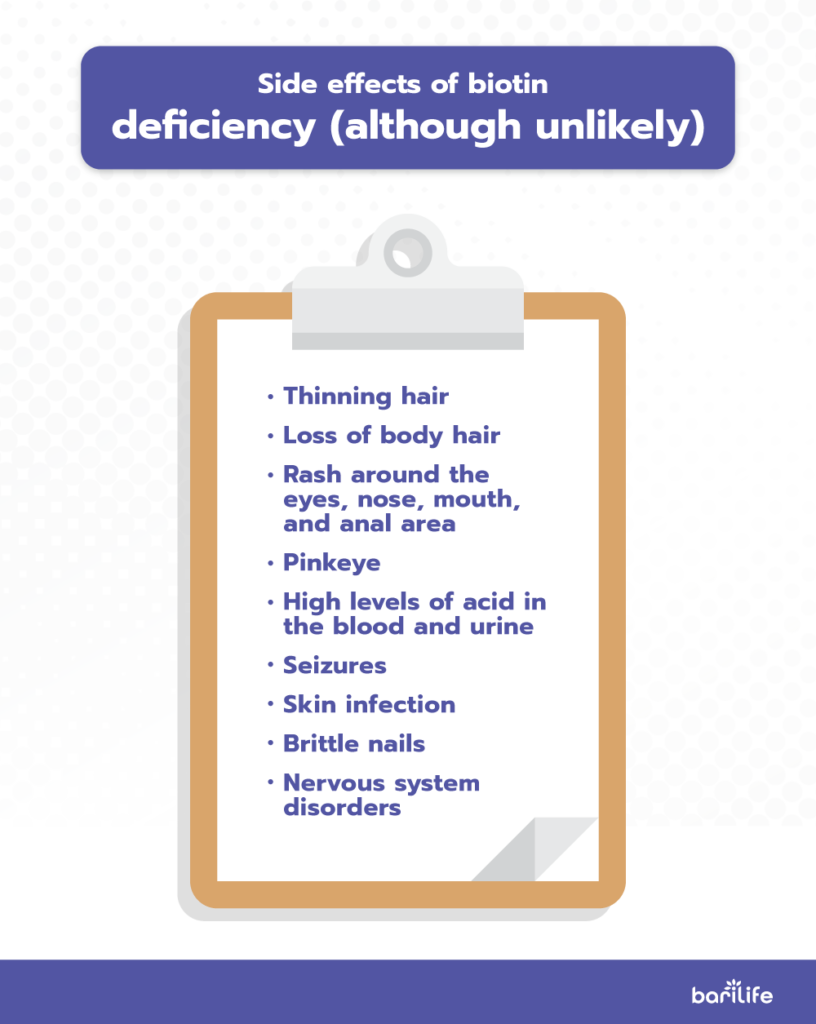You may already be familiar with Biotin, also known as Vitamin B-7 as one of the main ingredients in supplements commonly sold for hair, skin, and nail health. However, did you know that Biotin actually has many other uses in the body?

In this article, we will break down the main functions of this vitamin, the intake guidelines, and the signs and symptoms of deficiency to monitor for.
What are the main functions of Biotin?
Biotin is a water-soluble vitamin. This means that, unlike vitamins A, D, E, and K, which are fat-soluble, our bodies do not need the presence of fat to help absorb this vitamin. Biotin is naturally found in foods such as eggs, meat, fish, seeds, and nuts, and certain vegetables such as spinach.

Due to the fact that processing of foods can render Biotin ineffective, raw or unprocessed versions of these foods contain the highest levels of Biotin.
Harvard’s T.H. Chan School of Public Health also notes that Biotin can help to regulate the activity of our genes. According to the National Institutes of Health Office of Dietary Supplements, Biotin helps our bodies to convert the carbohydrates, protein, and fat that we eat into energy to fuel our bodies.
According to The Journal of Nutrition, Biotin is also a crucial vitamin to get enough of during pregnancy. This is because Biotin is extremely important for embryonic growth.

One interesting thing to note is that, despite Biotin being most commonly known as a vitamin that helps with hair, skin, and nail health, there is actually little scientific evidence to support this, according to the National Institutes of Health Office of Dietary Supplements.
What are the guidelines for Biotin?
The American Society for Metabolic and Bariatric Surgery (ASMBS) has not set a recommendation for Biotin intakes for individuals who have undergone a laparoscopic adjustable gastric band procedure, a sleeve gastrectomy, a Roux-en-Y gastric bypass, or a biliopancreatic diversion/duodenal switch.
According to Harvard’s T.H. Chan School of Public Health, an adequate intake (AI) level for Biotin has been set for adults overall. For adult males or females over the age of 19, it is recommended that 30 micrograms of Biotin are taken daily. This applies to pregnant women as well. Women who are lactating will need a slightly higher amount of Biotin, and the recommendation is therefore set at 35 micrograms per day for this population.

Because Biotin is a water-soluble vitamin, the risk of toxicity is low. This is because any excess Biotin that you ingest will simply pass through your body and be released through your urine.
If you take long-term anticonvulsant or antiseizure medications, you may need increased intakes of Biotin according to Oregon State University’s Linus Pauling Institute. If you fall into this category, speak with your primary care physician to determine an appropriate Biotin dosage for you.
What about Biotin deficiency?
According to Oregon State University’s Linus Pauling Institute, our bodies are unable to synthesize Biotin on their own. This means that we need to get Biotin from outside sources, such as food or supplements.
Luckily, despite the fact that our bodies are completely reliant on outside sources for Biotin, deficiency is extremely rare. According to the National Institutes of Health Office of Dietary Supplements, “Biotin deficiency can cause thinning hair and loss of body hair; a rash around the eyes, nose, mouth, and anal area; pinkeye; high levels of acid in the blood and urine; seizures; skin infection; brittle nails; and nervous system disorders.”

If you are experiencing any of these symptoms, it is important to speak with your primary care provider as soon as possible to determine if further testing or supplementation is necessary.
In summary
Biotin helps our bodies to convert the carbohydrates, protein, and fat that we eat into energy to fuel our bodies. It also helps to regulate gene activity in our bodies and is crucial for embryonic growth. While Biotin deficiency is extremely rare, it is important to ensure that you do not develop a deficiency, as symptoms can range from hair loss or rash to disorders of the nervous system.
Taking a multivitamin that has the recommended dose of Biotin is a simple and easy way to ensure that you do not develop a deficiency. Bari Life multivitamins contain 100% of the recommended daily value for Biotin, along with all of the other vitamins and minerals your body requires.
Visit the vitamins section of our website to browse all of our offerings and choose the best vitamin for you.



What are your tips and tricks to post-bariatric success?